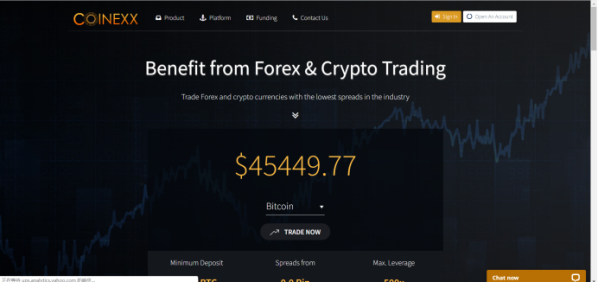
Is There a Difference – and Why Should I Care?
But the further down the crypto rabbit hole you travel, the more you will come to notice that it does actually matter whether you choose a centralized exchange (CEX) or a decentralized exchange (DEX).

Crypto was born in 2009 with the release of the Bitcoin White Paper, but it was not until 2014 that companies and individuals began exploring the idea of creating DEXes. Arguably it took several years for DEXes to become what they are now. But suffice it to say that crypto communities willed DEXes into being because they wanted to match their decentralized coins with the key functions of an exchange – without having to bring brick-and-mortar businesses into the equation.
What Is a Centralized Exchange?
Most people would agree that crypto exchanges have four core functions:
-
Capital deposits
-
Order broadcasting
-
Order matching
-
Token exchange
As custodial bodies with business registrations, often complying with legal regulations – including those pertaining to the financial sector – CEXes attempt to provide a gateway into the crypto world for those who want to, well, basically buy some BTC or altcoins when prices are low and sell them when the markets rise.
Ideally, such a body is accountable to government regulators, conducts know-your-customer (KYC) customer monitoring and flags suspicious-looking transactions for possible money-laundering violations, and holds considerable token and fiat reserves of its own. Bigger platforms may also be insured against the risk of hacking events.
They usually have a customer helpline, chatbot assistants, business registration numbers and actual offices – some of which offer face-to-face customer services for people whod rather speak to an actual in-the-flesh person about their crypto investments.
They also centralize all of the above-mentioned core functions through their platforms.
If you keep your crypto in the wallets they provide, your coins are either stored in their hot (trading, online) wallets or their cold (storage, offline) wallets.
They make their money, for the most part, by charging you transaction fees every time you make a trade or a transfer.
If you think these fees are too steep or think that the whole point of crypto is to avoid the kind of centralized, Big Brother monitoring you might experience with a tradfi bank, chances are you may have been thinking of making the DEX switch.
What Are the Benefits of Using a CEX?
CEXes are expensive to use and may well run counter to the spirit of blockchain technology, but they do have a number of key benefits, namely the following:
-
Liquidity
-
Security
-
Regulation
-
Easy-to-use
Liquidity
A big CEX makes its money from having enough fiat and assets in reserve to let you make instantaneous deposits and withdrawals. If you want to swap your BTC for USD, for instance, you would expect to be able to do that in seconds with a CEX…or youd take your custom elsewhere.
Liquidity is a CEXs trump card, some would argue – and that is why they put so much effort into providing customers with all the high-speed liquidity they could possibly need.
Security
Although high-profile hacks were once common in the world of crypto, it appears that many of the bigger exchanges are finally learning their lesson. While its certainly true that exchanges used to have almost laughably poor security systems, this is no longer true in most cases.
As such, the number of hacks executed on bigger crypto exchanges has fallen in recent years. Many also take out costly insurance policies that allow customers to recoup some or all of their lost funds in the event of a security breach.
Regulation
In many countries, crypto exchanges have to apply for operating permits and prove their stability and competence to financial regulators. These same regulators are keen to bring crypto under the same kind of regulatory umbrella as exists for tradfi institutions such as banks.
As such, they are monitored for irregular transactions and must implement investor protection measures. They also have to provide customers with risk notifications about the non-reversible nature of transactions and comply with government orders. If ensuring that your financial operations are conducted above-board and meet compliance standards, a CEX may be for you.
Easy-to-use
For most people, this is the real biggie. Creating user-friendly interfaces that even your grandmother could make her way around is a CEX‘s priority. And because orders and custody are all centralized on their platforms, they let you make your trades in seconds. Sure, you pay more for that privilege, but if you just want to buy some BTC fast and don’t care about much else, a CEX usually has you covered.
What Is a Decentralized Exchange?
Put (perhaps overly) simply, a DEX can be like turning on advanced settings in an app. The app (the CEX in this metaphor) is set up to meet the needs of the most typical user who cant be bothered over-thinking and interacting with their phone too much. But once you start tinkering with the settings and taking manual control, things get complicated – if sometimes better.
A DEX puts you in charge of your own tokens or fiat by letting you execute functions on a blockchain network directly. They do away with the central hub of the wheel so that there is no sole point of failure.
Theres no KYC here. And when it comes to prices, the DEX usually makes use of automated market maker technology that removes the need for a middleman body that regulates the price of coins. Algorithms – rather than employees – dictate how everything works.
You also need to take charge of your own private keys. A CEX usually handles this just like a bank manages your PIN. If you forget it, you can simply ask the CEX to send you a new one or reset it. If you are using a DEX and lose your private keys, your funds could become irretrievable – forever.
What Are the Benefits of Using a DEX?
DEXes can arguably bestow the following benefits on their users:
-
A better fit for decentralized tokens
-
No KYC
-
Self-custody options
-
Lower fees
-
A wider selection of tokens
A better fit for decentralized tokens
Crypto runs on decentralized blockchain protocols, so it has long been an irony that trading them has been confined to centralized organizations that gate off direct blockchain access. If decentralized coins and decentralized finance (DeFi) are your thing, why would you want to involve something that resembles a tradfi bank or bureau de change in the picture?
No KYC
What governments like least about crypto is elements of anonymity: anonymous wallets, anonymous transactions – and exchanges that allow users to operate under the radar. Proponents of crypto claim that the internet needs a native currency, and one that does away with governments‘ rights to monitor, block or freeze transactions. It might sound a bit anarchic or utopian to some, but others like the fact that DEXes don’t require users to prove who they are and submit selfies and copies of documents like passports to faceless tech giant firms.
Self-custody options
“Not your keys, not your coins” is the familiar battle cry of the crypto podcaster Antonio Pompliano. If you don‘t control your own private keys, you can’t take charge of your custody. Your tokens may be sitting in a wallet attached to your login details and password on a CEX, but – like a bank – the funds you own arent actually in your possession. Do you trust yourself to look after your own assets or a tech company? The answer will likely determine whether or not you will use a DEX.
Lower fees
As there‘s theoretically no middleman to pay with a DEX, you don’t need to worry about a platforms bottom line. Ultimately, if a CEX becomes unprofitable for too long, it will go out of business. With a DEX, fees can often be much lower. Sometimes the liquidity problem means that DEXes have to team up with liquidity providers – a factor that can actually drive fees up. But for the most part, the lack of an intermediary does help reduce costs to traders in many instances.
A wider selection of tokens
CEXes are forever listing and delisting coins – again often due to regulations. In Japan, for instance, regulators get to approve or reject coins, a factor that leads to an often very narrow selection of tokens on centralized trading platforms. CEXes have a lot to lose if a token turns out to be a dud – and often have listing councils that spend days or weeks going through listing applications with a fine-tooth comb. That can ensure greater safety for users, but it can also hinder your ability to make your own choices in this regard. DEXes put the responsibility in your hands, again decentralizing the process.
So Which One Is Best for Me?
It would be great to end with a quick and easy answer, but as is the case with most things crypto-related, the answer is: its complicated.
Essentially, whether you choose a CEX or a DEX just depends on your needs: Do you want an easy, fuss-free system, or do you prefer advanced options and greater independence?
Crypto is divisive in many ways, and the choice of whether to use a CEX or DEX will inevitably put you on one side of the fence or the other – even if you have little interest in the CEX vs DEX controversy.

If you think you have better things to do with your time than fuss about with algorithms, blockchain networks and private key management, use a big, reputable CEX. But if you want deeper levels of control over the way you trade and want to explore a way to reduce your trading costs, maybe a DEX is worth looking into.



